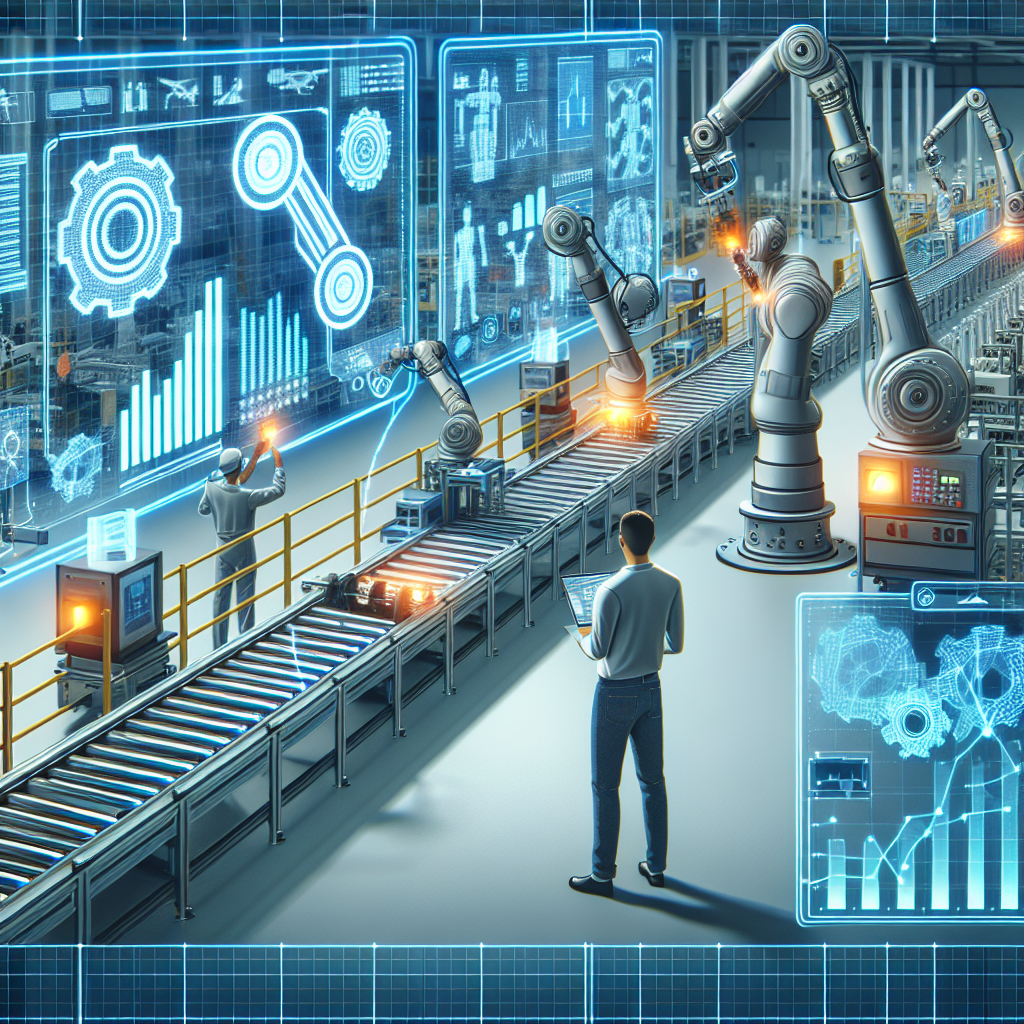Implementing AI-driven Solutions for Smart Manufacturing
In recent years, artificial intelligence (AI) has revolutionized various industries, including manufacturing. AI-driven solutions have the potential to transform traditional manufacturing processes into smart manufacturing systems, where machines are able to think, learn, and act autonomously. By harnessing the power of AI, manufacturers can improve efficiency, quality, and productivity while reducing costs and waste.
AI-driven solutions for smart manufacturing encompass a wide range of technologies, including machine learning, computer vision, natural language processing, and robotics. These technologies enable machines to perform tasks that were previously only possible for humans, such as analyzing data, making decisions, and controlling manufacturing processes in real-time.
One of the key benefits of implementing AI-driven solutions in manufacturing is predictive maintenance. By using AI algorithms to analyze data from sensors and machines, manufacturers can predict when equipment is likely to fail and schedule maintenance before a breakdown occurs. This proactive approach to maintenance can help minimize downtime, reduce repair costs, and extend the lifespan of equipment.
Another important application of AI in manufacturing is quality control. AI-powered systems can analyze images and data from cameras and sensors to detect defects in products early in the manufacturing process. By identifying and addressing quality issues quickly, manufacturers can improve product quality, reduce waste, and ensure customer satisfaction.
AI-driven solutions can also optimize production processes by analyzing data from sensors, machines, and other sources to identify inefficiencies and bottlenecks. By optimizing production schedules, resource allocation, and workflow, manufacturers can increase productivity, reduce lead times, and improve overall operational performance.
In addition to predictive maintenance, quality control, and process optimization, AI-driven solutions can also facilitate supply chain management, inventory control, and demand forecasting. By analyzing data from suppliers, customers, and other sources, manufacturers can make more informed decisions about sourcing, inventory levels, and production planning, leading to cost savings and improved customer service.
FAQs:
Q: What are some examples of AI-driven solutions for smart manufacturing?
A: Some examples of AI-driven solutions for smart manufacturing include predictive maintenance, quality control, process optimization, supply chain management, inventory control, and demand forecasting.
Q: How can AI improve efficiency in manufacturing?
A: AI can improve efficiency in manufacturing by automating repetitive tasks, optimizing production processes, and enabling real-time decision-making based on data analysis.
Q: What are the benefits of implementing AI-driven solutions in manufacturing?
A: The benefits of implementing AI-driven solutions in manufacturing include improved efficiency, quality, and productivity, reduced costs and waste, and enhanced competitiveness in the global market.
Q: How can manufacturers get started with implementing AI-driven solutions?
A: Manufacturers can get started with implementing AI-driven solutions by identifying their specific needs and goals, evaluating available technologies and vendors, developing a roadmap for implementation, and training employees on using AI technologies.
Q: What are some challenges of implementing AI-driven solutions in manufacturing?
A: Some challenges of implementing AI-driven solutions in manufacturing include data integration and quality issues, lack of skilled personnel, resistance to change from employees, and concerns about data security and privacy.
In conclusion, implementing AI-driven solutions for smart manufacturing can help manufacturers improve efficiency, quality, and productivity while reducing costs and waste. By harnessing the power of AI technologies such as machine learning, computer vision, and robotics, manufacturers can transform traditional manufacturing processes into smart manufacturing systems that are more agile, responsive, and competitive in the global market. With the right strategy, investment, and expertise, manufacturers can unlock the full potential of AI-driven solutions to drive innovation, growth, and success in the digital age.

